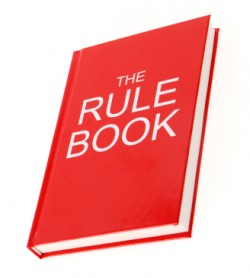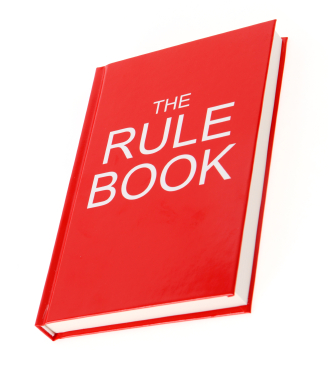 A friend of mine is currently reading through Joan Didon’s book Play It As It Lays. I haven’t read it myself, and I’m not really conversant in Didon’s work (I did remember she did the screenplay for the 70s version of A Star is Born and I remember seeing stuff about her 2005 book A Year of Magical Thinking). This friend commented:
A friend of mine is currently reading through Joan Didon’s book Play It As It Lays. I haven’t read it myself, and I’m not really conversant in Didon’s work (I did remember she did the screenplay for the 70s version of A Star is Born and I remember seeing stuff about her 2005 book A Year of Magical Thinking). This friend commented:
Ah crud, I think the nihilism of Joan Didion’s main character in “Play It As It Lays” is getting to me–while out walking on this gorgeous fall day, I was mumbling stuff like, “There are no rules in relationships. There’s only what people like and don’t like.” And I was already a little nihilistic to begin with. Next time you see me, don’t be surprised if I’m wearing a black turtleneck and muttering things about the futility of existence between exhalations of cigarette smoke.
Now, the small bit of tongue-in-cheek-ness aside, that raised what I think is an interesting question. (And since she’s decided to not pursue a bit of public dialog on the subject, I’m going to jump in and not let the thought go to waste.)
Where do rules in a relationship come from?
There are a number of different places you can find rules for relationships. Pop culture is full of relationship rules. Others show up in numerous books on the subject. Still others are dictated by religion. And others come from the sub-cultures you may be part of.
Thing is, a lot of those rules conflict–not just with one another, but with common sense.
Pop Culture Relationship Rules
Pop culture relationship rules, the most popular ones we all know about, can cause some of the worst problems. They’re also the ones that can be in the most conflict with themselves.
Things like having to wait three days before calling someone after a first date or otherwise hiding just how into someone you are encourage game playing that hinges on obfuscation and suppression of how you actually feel. Other pop culture rules (like what’s supposed to happen on the third date or what’s expected of a man or woman in a relationship) can push people into things that they’re not comfortable with just so they can fit in.
And then there’s the over-emphasis on tragedy in a relationship that’s been the lynchpin of romance as far back as ancient mythology. The whole Romeo & Juliet idea of star-crossed lovers, while there are times it does legitimately play out, is a thing that far too many people latch on to without remembering just how poorly that relationship setup ended.
Anyone who tries to follow all the pop culture rules is going to just spin themselves wild trying to be both open and closed to sex, honest and game-playing, tragic and heroic… there’s not time or energy in that sort of mix for much good to come out of the relationship.
Relationship Experts Write the Rules
Much the same can be said about any rules put forward on relationship experts (myself included). I can hit the self-help or relationship section of a bookstore and pull a dozen books from the shelves. Half of them will offer advice directly in opposition to what the other half say is the “right” way to do things in a relationship.
There are thousands of books that have been written by relationship experts. Thousands more write regular advice columns or websites dedicated to the subject.
Do the offer bad advice? It really depends. For some people, yes. For others, no.
Relationships and Religion
Who wins and who loses in a relationship based on religious rules really depends on how you see yourself interacting in the world. The idea of “equals” in a relationship isn’t something you’ll find in most classic religions. They’re pretty heavy into the patriarchy. So, if you’re a woman, you better be okay with being at least a little subservient, if not outright considered property. Some more modern interpretations even this out a little, but there’s still the male bias to be dealt with if you’re looking for any solid and specific advice.
More modern neo-pagan religions can sometimes skew the other way, but tend to be a little more balanced in the roles of male and female in a relationship. They’re also open to the whole polyamorous idea in many cases. But then you get, once again, into the problem of lots of conflicting rule suggestions.
Sub-culture Rules and Expectation
Every sub-culture brings with it its own set of rules. Best known is probably the proper protocols for interacting with people in a DBSM arena (it involves a whole lot of frank discussion of where limits are, for good reason). Other sub-cultures–from hippies to high schoolers to rock stars–all have culture specific rules that apply as long as you’re involved directly in that sub-culture.
That’s great as long as your relationship never leaves that sub-culture. But what about when it does? Or if only one person in the relationship is involved in the sub-culture? That’s where the sub-culture dictated rules fall apart quickly.
The Real Relationship Rules
There is only one place relationship rules can really come from: the people involved in the relationship.
This is why it’s so important for each person in a relationship to know themselves. If you don’t know what you like, you can’t tell someone else what they can do for you. And if a lot of relationship interactions are one person constantly hitting on things that the other doesn’t like, well, that relationship can quickly become a bad memory.
The second part of that, of course, is communicating your likes, wants, and needs to your partner. From there, you can come up with personal and individual relationship rules.
The real rules of a relationship are unique to that relationship.
Very often, they’re in conflict with some other set of rules that we’ve been indoctrinated into. Those external rules, though, don’t take into account the nuances of interacting with individuals and should always take a back seat to the more personal relationship rules.
So how about you? Where do the rules in your relationship come from?
